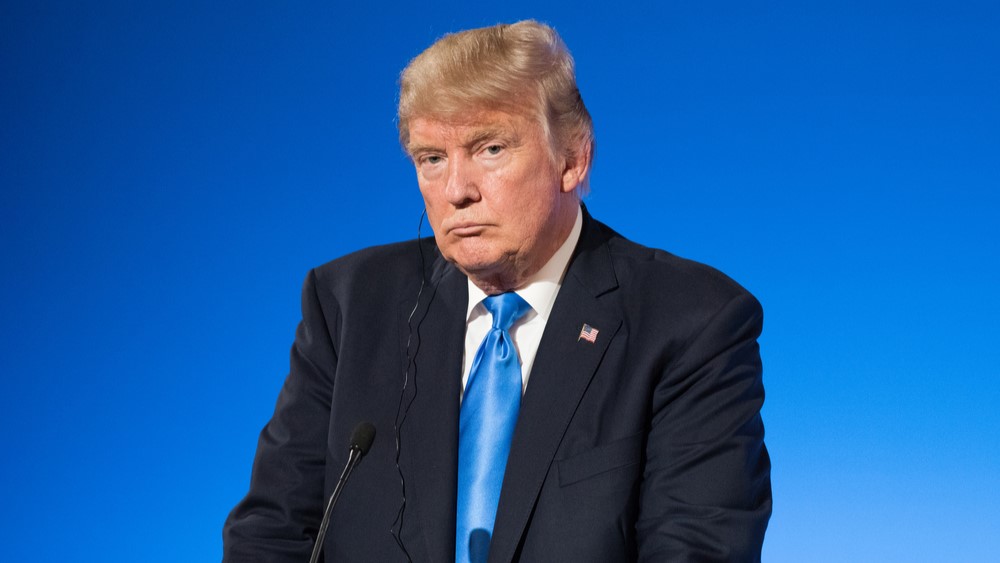US equity ETFs surged, China ETFs fell, clean energy ETFs tanked and crypto exchange-traded products (ETPs) rocketed on news of a second Donald Trump presidency. Meanwhile, the ETF industry was in equally mixed minds.
US fixed income
Arun Sai, senior multi-asset strategist at Pictet Asset Management, said in the event of a Republican clean sweep, which now appears likely, “federal debt will go up sharply – double the increase we would have got under Kamala Harris, according to the Committee for a Responsible Federal Budget.”
“That is on top of potentially harsh tariffs, including the threat of a 10% universal baseline. This in our view is a very negative outcome for US treasuries,” he added.
Aaron Bright, assistant portfolio manager at IG, noted that the proposed tariffs could well cause US inflation to tick up.
As such, Bright has trimmed very long duration – over 20-year – US Treasury exposure fearing inflation could prove “slightly stickier”, recycling some of the capital into the belly of the yield curve.
US equities
US equity markets, on the other hand, enjoyed the news, with the S&P 500 touching 6,000 points for the very first time.
Small cap equities lurched higher on the news, with the Russell 2000 up 5.8% since the day of the election, as at 13 November.
Andrew Smith, client portfolio manager, US equities at Columbia Threadneedle, commented: “US small caps could also do well, at least in the immediate aftermath, given that they are perceived to benefit from more protectionist policies, being much more skewed towards the domestic market and local supply chains, less influenced by tariff rhetoric and reality.”
A Republican clean sweep will allow Trump to enact much of his policy agenda, of which tax cuts and deregulation are two key pillars.
“This should help underpin US equity strength in areas not so sensitive to tariffs,” according to Bright.
For Sai, “banks stand out as a clear winner [within equities] benefiting both from higher yields and potential deregulation.”
As such, the KBW Nasdaq Bank index is up 10% since the election news began to filter through.
Clean energy ETFs, however, have sold off heavily since the election, with Trump threatening to ‘rescind all unspent funds’ under the Inflation Reduction Act (IRA) – the signature climate policy of the Joe Biden administration.
Smith, however, argued that the selling may be overdone.
“There might be some tinkering at the margin with the Inflation Reduction Act (IRA), but we do not foresee a wholescale repeal, given the benefit it has already produced in terms of jobs and investment for many Republican states,” he explained.
Traditional energy, in contrast, ha performed strongly in recent days, with the S&P 500 Energy index up 3.6% since the election.
Emerging markets
While tariffs and trade friction are ostensibly bad for emerging markets, for Sai, “a non-recessionary easing cycle remains an attractive macro backdrop for them.”
“Additionally, we believe that China will redouble its efforts to boost the economy with fiscal stimulus as an insurance policy against any new US trade barriers,” he added.
Krishan Selva, client portfolio manager, emerging market equities at Columbia Threadneedle also painted a nuanced picture for emerging markets.
“The impact of a second Donald Trump presidency on emerging market (EM) equities will likely hinge on trade policies, US dollar strength and geopolitical stability. This will create both risks and opportunities for us to navigate,” he said.
The MSCI China index has dropped about 6.2% since the election, though much of this can be explained by a disappointing stimulus package. The MSCI Emerging Markets ex China index, on the other hand, has fared slightly better – down just 2.9%.
Crypto
Perhaps the election’s biggest beneficiary has been crypto, with bitcoin topping $90k for the first time – a 30% surge since the election.
Charlie Morris, chief investment officer at ByteTree Asset Management, said: “The US election was well received by crypto and has brought forward the bullish case.”
“Bitcoin’s shadow ban, by which I mean the resistance to allocate by institutional investors, will be challenged, first in America and, eventually, in the rest of the world. A tidal wave is coming, and there is no stopping it,” he added.
Looking forward
While the election result triggered powerful moves in many asset classes and sectors, how long the momentum lasts remains to be seen.
“Our analysis of past US elections shows that the impact on asset prices usually starts to fade after a couple of months,” explained Sai.
“Over the long term, economic fundamentals rather than politics tend to determine market direction.”





